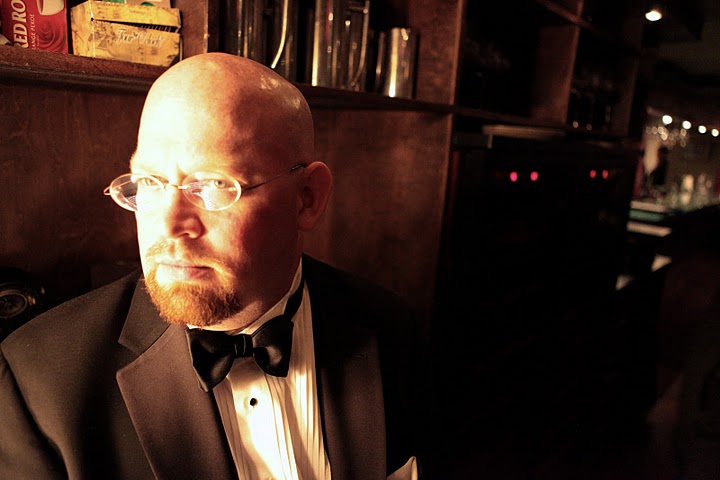
Award winning writer and producer Dennis Heaton is currently the executive producing and show-running season 4 of MOTIVE (CTV/NBCU). Other recent credits include CALL ME FITZ (HBO Canada/Audience Network), THE LISTENER (CTV/NBC), JPOD (CBC), BLOOD TIES (LIFETIME/SPACE) and the feature film FIDO (LIONSGATE).
Heaton received two 2014 Canadian Screen Awards Nominations for Best Dramatic Series for MOTIVE and Best Comedy Series for CALL ME FITZ, with Fitz winning the category. He has four prior Gemini nominations, four Canadian Screenwriting Award nominations (winning for his YVON OF THE YUKON script “The Trouble With Mammoths”), and nine Leo Award nominations (winning for his BEING IAN script “The Greatest Story Never Told” and his CALL ME FITZ script “Fucking Memories”). His web series, MY PAL SATAN, won best web series (and theme song) at the New York Television Festival. His short film, HEAD SHOT, premiered in competition at the Berlin International Film Festival, won best short film at the Just For Laughs Festival in Montreal, and went on to play in film festivals and on television around the world.
He won two Leo Awards in 2015 – one for Best Dramatic Series for MOTIVE and one for
Best Screenwriting/ Animation Program or Series for NERDS AND MONSTERS – “Are You Gonna Eat That?“.
He has also been serving as the Pacific Area Councilor for the Writers Guild of Canada since 2010.
Dennis Heaton lives in Vancouver with a dog that likes him all the time and a wife that likes him most of the time.
(adapted from the CFC Directory)
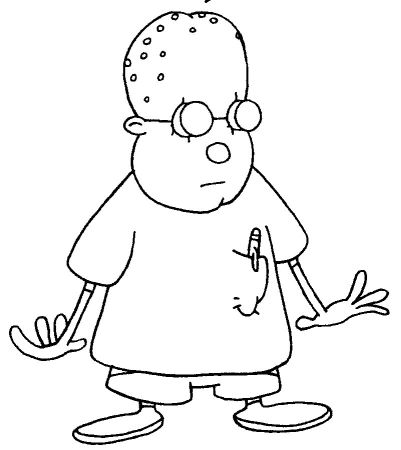
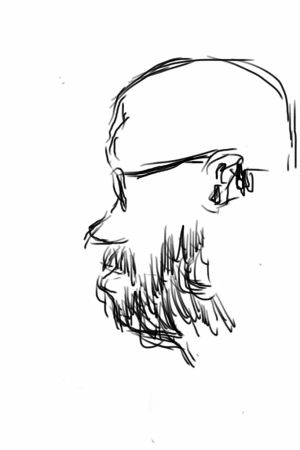
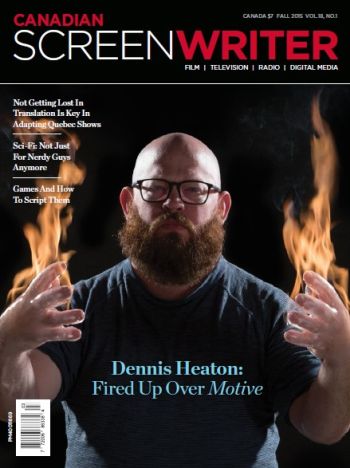

AN INTERVIEW WITH DENNIS HEATON
Dennis Heaton is an Executive Producer and writer for Louis’ show MOTIVE. He kindly agreed to an interview with Ferreira Fest.
We’ll let Louis introduce him to you! Listen to the sound clip here:
LF – “Dennis Heaton was the man behind the curtain on Motive for the first season. And, rightly so, was given that position in the second season and has been helming the show since then.
Dennis is humble, and he’s super talented at what he does, but he’s also very accessible. And that to me is the key: that I can pick up the phone and really have a conversation. As a brother, as a friend, not with that line drawn in the sand of the Executive Director, or whatever it is that some of these guys tend to do.
And, so, that accessibility for me is probably his greatest strength.
We talk now more than ever. And it’s really, a lot of times, just enjoying each other’s personalities as much as a little bit of the work stuff. So there’s more friendship on the side of that then there is… so there’s a mutual respect, I think.
I’ve watched him grow in the position and I love that, I love that was an opportunity that he’s had, so, and made the most of it, with what he was given. And so, for that I’m grateful for… to him and for the friendship.
Because if you don’t have access to a showrunner or a captain, or there’s no captain on a team, then in my opinion the show, which is a very difficult thing to start doing to begin with, becomes even much more difficult when there isn’t someone helming the ship.
We need a captain. And Dennis has been our captain for a while now and I’m grateful for him, too.”

And now, without further ado, here’s Dennis Heaton!
FF – Hi Dennis, and welcome to Ferreira Fest. We’re so thrilled to have you join us today. So, let’s start with something really simple. Who is Dennis Heaton and what gets you up in the morning?
DH – Well, who is Dennis Heaton? Hopefully I’m Dennis Heaton. I’m the executive producer and showrunner for the TV series Motive, which is made up here in Vancouver, British Columbia. And what gets me up in the morning, besides talking to you, is making TV every day.
FF – Right. Wonderful. So, what inspired you to be a writer and a producer? And do you do any other kind of creative work in that line? Or maybe even totally apart from that.
DH – Oh sure. I knew I wanted to work in the film industry when I was in elementary school.
I had a childhood love of horror movies. I would get up at midnight on Friday night with my Dad and we’d watch The Beast of Yucca Flats and Night of the Living Dead and just all those old creature features that they’d run, after all the decent citizens of the world were asleep.
And I just fell in love with monster movies. So when I was twelve, I thought I was going to do special effects. That’s what I really wanted to get into.
And then, over time, I developed a love of writing. It was something I always did as a hobby, something to pass the time. I didn’t really realize that I could have a career as a writer, probably until I got into college and finally made the connection between screenwriting and paychecks. And basically, by then I had the desire but I still didn’t really have the wherewithal to get into it. I ended up in a career in animation for about seven or eight years. And I started out as a production artist. Then I became a production supervisor, and then finally a producer. I produced a TV series for MTV called The Brothers Grunt with Danny Antonucci who created the cartoon character Lupo the Butcher and Ed, Edd ‘n’ Eddy.
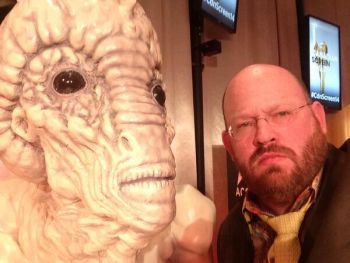
I was the producer on a couple of Gary Larson: Tales from the Farside projects.
FF – Oh my god, yeah.
DH – One was a Halloween special for CBS. And then the second was a direct to video sequel that we did. So, I was doing all this animation producing and in the back of my head it was like, you want to write. You want to write!
And so eventually I shifted over to writing for cartoons. So, for a number of years I was in the zone where I was still doing some producing, and then I was writing for cartoons, and during that time I directed episodes of Transformers for Fox Kids. A series of Beast Machines, I directed a couple of documentaries, and gradually, as the animation writing became more and more focused, I became more of a full time writer. And then from there, from the animation writing, I segued into writing for live action and started staffing on different TV shows. And, staff writing, being in the writers room on different TV shows.
And worked my way up that ladder to showrunning Motive.
FF – Are you still involved in animation? I seem to recall you getting a Leo recently for something that you had done?
DH – I do. Yeah, I won a Leo Award for a script I wrote for a series called Nerds and Monsters called Are You Gonna Eat That?
FF – Now, Dennis, at Ferreira Fest here, we have a vested interest in mentorship. We’re always interested in how people get to where they’re at. Who were, and possibly even still are, your mentors? And do you, yourself, have an interest in mentoring?
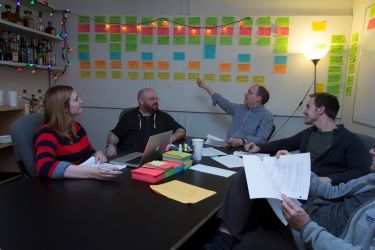
DH – Definitely, I have an interest in mentoring. Whether I do a good job at it or not, you’d have to talk to the mentees. The writing aspect of the film industry, I would say, has very much of a mentor structure to it. Simply out of the fact that the writing room itself always requires there to be a cross-spectrum of writers.
So you’ll have more experienced writers, like the writers with fifteen, twenty years’ experience, and then you’ll have writers with ten to fifteen years’ experience, and then the writers right out of the gate, up to ten years’ experience.
You build a room with the various levels of experience because everybody has something different to bring to the table. But you always want to make sure that you’re giving the newer writers an opportunity to get into the room and to develop their voice. So, there’s that aspect of it, and then of course on a one-on-one level, I’ll go out and have coffee with pretty much anybody who phones me, who’s looking to be a writer, if I have the time.
I’m going to caveat that, because sometimes I don’t have the time to meet with people, but when I’m in my down period, I try to meet with as many motivated writers who are obviously making the effort to get the information, I’m more than happy to sit down and talk with them.
I talk to a lot of students, I go to a lot of classrooms and talk about the career. So I’m always doing whatever outreach I can do with newer writers.
In terms of my own career, I’ve had a few people that I would consider mentors, both in and out of writing. I would say that Pete Mohan who gave me one of my first jobs in the writers’ room has been one of my biggest mentors. He’s still a guy I’ll call for advice. So, I’ve been in the industry now… like if I go back to when I started out as a production artist, I’ve been in the industry now for over twenty-five years. And I still reach out to people like Pete and say, “You know, I’m not sure about this, what would you do?”
It’s always great to have that person to bounce ideas off, so the fact that somebody would consider me that resource, I’d be quite pleased with.
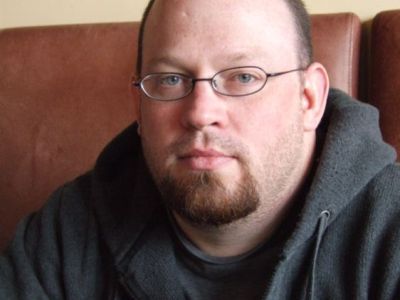
FF – That’s the funny thing about mentoring, we’re never really too old for it, to receive mentoring, and we’re never too young to mentor someone else. Because even if you’re just an hour ahead of some other person who’s doing what you’re trying to do, what you’re doing, you have that hour, or that day or that year, ahead of them, and you can pass on that information.
DH – That’s a really, really good point. Because sometimes that’s a critical hour that you’ve got.
FF – Right. Exactly. So, now, basing on this mentoring idea, what was the most useful piece of advice that you received that helped you break into the business or advance a huge step ahead?
DH – That’s a great question, Bea, wow! One of the best pieces of advice that I ever got was – if you want to write, you gotta write. It’s really easy to say you want to be a writer, and it’s really hard to get up every morning and spend two hours before you go to a day job, sitting at a keyboard typing, typing an idea, writing a story, doing a character sketch.
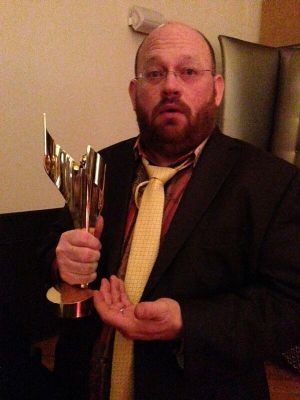
A friend of mine once described writing “Many are called but few are chosen”. What I always loved about that statement is, it’s really easy to want to be a writer, but it’s really hard to put the hours in to actually get there. And it’s tenacity. People talk about the luck of getting into the film and television industry, and to a certain extent I agree, but it’s a manufactured luck, and it’s a luck that’s manufactured from putting in the sweat equity and investing in yourself, and spending the time to train yourself. Because there’s no magic formula to being a writer.
You can read all the books on writing and on screenwriting that have ever been published, and nobody’s ever going to say, all you have to do is give the gypsy queen a silver quarter and you’re a writer.
If I could have done it that way, I would have, because I’m inherently lazy. So it’s just, you’ve got to put the time in.
FF – Yeah, I’ve heard that from other writers, too, that there’s so much self-motivation involved because nobody can say, sit down and write, you have to say that to yourself and you just simply have to do it, and overcome the blocks and just work through it, because if that motivation isn’t in yourself, nobody’s going to give that to you.
DH – Exactly.
FF – Now, with the rise of social media, creative artists have an opportunity to receive immediate feedback from the viewers. Do you feel that this affects the creative process, both positively or negatively, and if so, how?
DH – That’s a great question. Definitely, social media affects a show these days. And I think it’s great. Positive or negative feedback is great to get. Simply because it means that people are reacting to the material that you’re putting out there. I think the absolute worst thing that you could have happen to a project that you make is to have people go, “eh,” and just move on.
Right? A negative reaction is still a reaction, and it’s a reaction that you can learn something from. I would say you have to develop a thick skin, probably a thicker skin than you had to develop before social media. And, don’t get me wrong, if you’re going to be a writer, you’re basically putting yourself into the path of unbridled criticism.
Everybody’s going to have an opinion about what you do and what you put down on paper. And sometimes those opinions are going to be spot on, and other times those opinions are going to be completely out of the blue. But any criticism given in a respectful manner, intended to improve the quality of a project, is always going to be welcome.
And I would say that is the biggest downside of social media, is, the criticism is sometimes non-constructive. I’ll give you a non-Motive example. I did a web-series once called, My Pal Satan. It was six little shorts about a human woman who ends up with Satan as a roommate. The idea was, what would it be like if you literally had the roommate from Hell?
FF – Oh, I think I’ve been there, actually.
DH – A lot of us have. A lot of us have been there. And so I wrote and produced this web-series, and obviously I love it because I took the effort to get the Canadian Film Centre interested, so that they would help fund it, hire a cast and crew and get a bunch of volunteers to make the thing with me. So, you do this labor of love, and you put it out into the world, and you get a response on the audience feedback page that goes, “This show is…” and I’m toning down some of the language, so when you hear me say ‘crap’ think of the other word. “This show is crap, this show is just awful, everybody involved should kill themselves.”
It’s horrible, what do you do with that?
The anonymity of the internet, a lot of people take unfair advantage of it. That’s why I say, you’ve got to really develop a thick skin. Because it’s a cliché, but the haters are going to hate, kind of thing. And you’ve got to accept that.
I think it’s a mistake that some people go online and all they look for is the positive reaction. Right? You can’t take the gravy without the gristle.
And if you can’t weather the negative feedback then you shouldn’t go hunting for the positive feedback.
FF – Right. Exactly.
DH – A little bit of a meandering response.
FF – No, that’s perfectly okay. That’s what we’re looking for here. Your voice, your thoughts.
So now, what was your most rewarding work experience on a creative level?
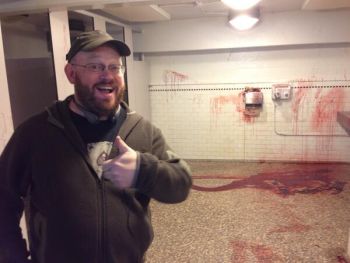
DH – I love to write comedy as well as police procedurals and genre stuff. And I did a short film called Head Shot a number of years ago.
And it was a short film, it’s a comedy about an actor, he thinks he’s gone to an audition, only to discover that he’s actually been hired to do a snuff film. And then he finds out that they’re going to fire him because he’s a lousy actor, so he fights for the role. He’s like, no, I can be killed in a snuff film, like…
FF – Right.
DH – So it’s basically a blooper reel from a snuff film. It got accepted into the Berlin Film Festival, and I got to go. And I’m sitting with this international audience of film-goers with this five minute snuff film that I shot in eight hours. And everybody’s laughing, and, to be sitting there and experience that level of enjoyment for something that you’ve made, getting that immediate feedback of the audience, is really cool. It’s really cool.
FF – What an experience, that sounds great! So now, we’ve said before, you’re currently writing for Motive and you’re also executive producing the series.
DH – Yeah.
FF – Now, when you start working on a new show, what do you do to get to know the actors and their characters so you can write in their voice?
DH – Oh man, that’s a good question. The voice of a character is always a developmental process. The first few scripts are often written in the vacuum of not having a cast. We write several scripts during the development stage, and a pilot is written sometimes years before a show is actually created, or actually greenlit for production.
It’s a bit of a fusion of what you put on the paper being interpreted by the actor, coming back to you, and you seeing what the actor’s bringing to the table, and then modifying the voice to suit the direction that the actor has started to take things. You’ll start to see it in the initial audition tapes of the actors that you’ve selected, you see their cadence and their nuances and how they morph the lines to change an emphasis, or to, what we call, take the marbles out of the mouth.
Which is, the writer has written a gormy bit of dialogue that’s kind of awkward to say. And you don’t always necessarily know you’ve written a chunky line, until you hear someone try to say it. And it’s like, oh, right. That’s awful.
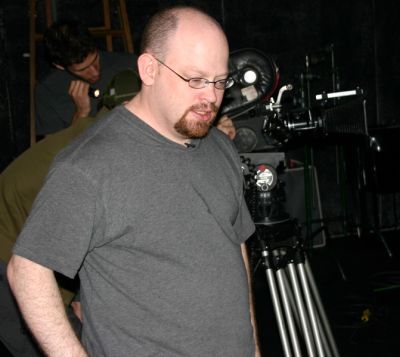
FF – Sounds a little wooden, there, yeah?
DH – Yeah. It’s like, “I’m so sorry that I made you say that”.
For me, at least, it’s always a give and take process of paying attention to what either they’re doing, what the actors are doing in the dailies, or just being on the floor with them and listening to the rehearsal of the dialogue and going, yeah, that doesn’t work, let’s try changing stuff on the fly, or if an actor has a suggestion to tighten up a line, or to get a point across more succinctly.
It’s a give and take.
FF – So it must be, in a way, more rewarding to stick with a show for a while and get to know the characters and write for them for a while as opposed to writing one script for a show, like a one-off thing.
DH – Definitely. It’s definitely more rewarding. I’ve been doing Motive now for four years, and finally in season four I feel like I’ve got a handle on it. So… I’m finally getting to know what I’m doing.
FF – Well, it’s like getting to know real people, in effect, you don’t get to know them in a week or two anyway.
DH – No.
FF – You just explore them slowly over time.
FF – So now, what are the special challenges, or joys, as the case may be, in writing for a character like Oscar Vega?
DH – Vega is such a cool detective to write for because both Vega and Flynn are, in my opinion, not your typical procedural detectives. They both have a capacity to see beyond the simplistic black and white attitude of good and bad, and understand that people sometimes do terrible things for a good reason. And their understanding that there’s more complexity to a situation than “bad guy must be caught and punished”, which is definitely still something that has to happen, but to know that by having a greater understanding of why something happened, can lead to a satisfying resolution.
FF – Right. Yeah, and, I’ve just re-watched some of the episodes, and it’s really surprising to me, and delightful in a way, that sometimes you’re on the murderer’s side. Not on the victim’s side. Whereas most police procedurals put you on the side of the victim and you feel sorry for them, and all that, and the bad guy is the bad guy. And that’s it. But, in many ways, the murderer’s story, oftentimes in Motive, is more interesting than anyone else’s. And you feel empathy for them.
DH – Exactly. Exactly. And what’s always really important, for me, is that they have killed, so I don’t want to be in a situation where we’re rooting for the killer, because there’s very few circumstances where, and I’m talking about this on a narrative level, a television level, there’s very few circumstances where I believe in storytelling you can actually get behind the killer. Right? Where you can actually say that the killer’s actions are just and noble.
Generally in storytelling, it’s a revenge film; a tenet of a revenge film is the fact that the justice system is impotent, unable to do anything to help the person. You actually have to take the audience on a story through a horrific event happening to an individual, that individual looking for justice through the civilized channels of society, through the police and through the courts. And those systems have to fundamentally fail him or her before they can pick up the gun and go out and kill on their own.
That’s the true narrative structure of a revenge film. And, the flaw of that, of applying that to a show like Motive, is my cops aren’t incompetent. These are extremely intelligent people.
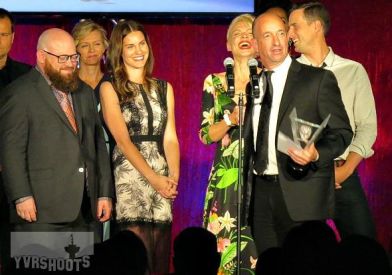
So, I never want my murderers to be above the law. I can definitely have the empathetic killer, the sympathetic killer and sometimes we even manage to get in the completely awful killer who absolutely does not deserve any sympathy from the audience. I think that’s why this show is always so surprising, because you never know what kind of killer you’re going to get. Unlike other procedurals where it’s like, killer = bad.
FF – Let’s talk a little bit about Louis, here. We’re getting towards the end! Do you have any memorable experiences with Louis that you would like to share?
DH – Louis is such a treat to have on set. He has such a great sense of humor. He is so much fun to be around when we’re filming. If we’re ever in a tight situation, the pressures of the production are just starting to weigh, it’s always going to be him that cracks a joke and gets everybody’s moods lifted. So, there are too many instances of that, to think of just one.
FF – Here’s the last question I have for you, Dennis. If you had to describe Louis in four words, what would they be?
DH – In four words?
FF – Yes.
DH – Here we go. So these are the four words I would use to describe Louis.
Hilarious. Generous. Melodious. And talented.
FF – Those are great words! Thank you so much Dennis! So, anyways, that was it, for our conversation today. Thank you so much for being with us here at Ferreira Fest. And I really appreciate you spending the time and I hope you have a wonderful rest of the day.
DH – Thanks, Bea, and thank you for arranging this, this has been a lot of fun.
FF – Okay, thanks, bye-bye.
DH – Have a good day.
Thanks to Margo for lining up this great interview and providing several questions, and to Casey for the transcript!

Keep Up With Dennis Heaton
Follow Dennis Heaton on Twitter
Subscribe to Dennis Heaton’s YouTube channel
Check out Dennis Heaton on Wikipedia
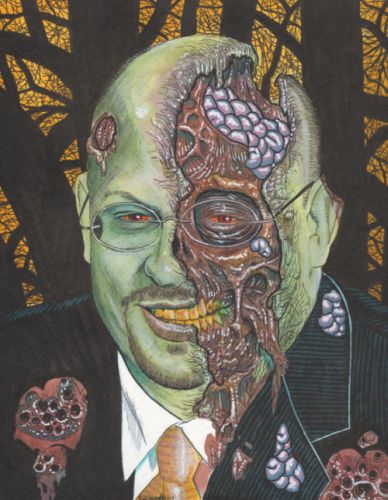
Dennis Heaton – zombiefied
or: 6am on a Monday morning, Vancouver, BC
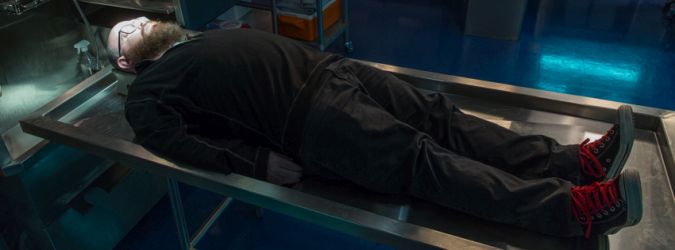
Catching some Z’s during the 2pm slump.
On an autopsy table.
(You gotta do what you gotta do.)
